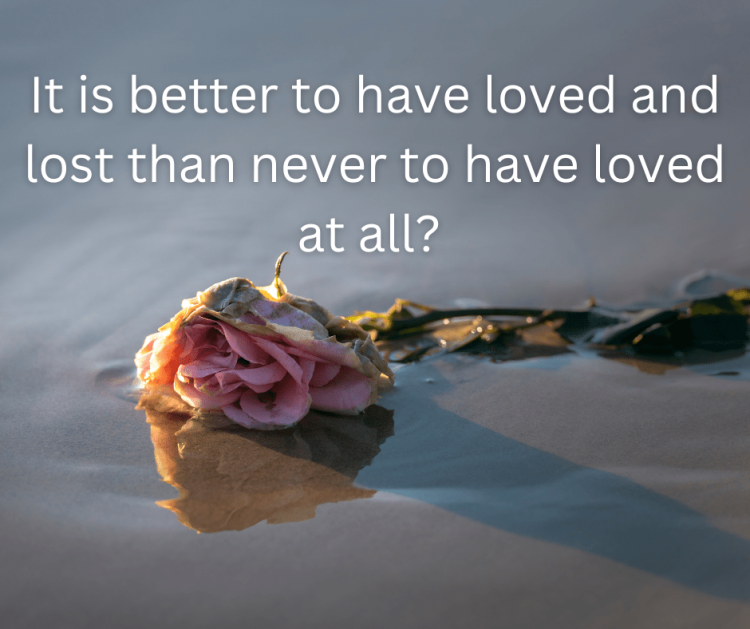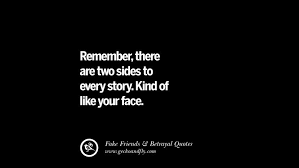The Value of Love: Why It Is Better to Have Loved and Lost

Love, an emotion that transcends time and culture, has been a perennial subject of human fascination and contemplation. From ancient myths to modern literature, from personal diaries to philosophical treatises, the exploration of love and its impact on individuals has been profound. One particular adage stands out amidst this exploration: “It is better to have loved and lost than never to have loved at all.” This statement, often attributed to Alfred Lord Tennyson, encapsulates a sentiment that resonates deeply with many. This article aims to delve into the complexities of this statement, examining why the experience of love, despite its potential for heartache, holds immeasurable value in human life.
Understanding Love
Love, in its myriad forms, encompasses affection, passion, intimacy, and attachment. It has been studied extensively across disciplines such as psychology, sociology, and biology, each offering insights into its mechanisms and effects. Psychologically, love is crucial for emotional well-being, providing individuals with a sense of belonging, security, and fulfillment. Evolutionarily, it serves to foster social bonds and ensure the continuation of the species. From a philosophical perspective, love represents a profound connection between individuals, transcending mere biological imperatives to encompass ideals of selflessness and empathy.
The Paradox of Love
Despite its undeniable benefits, love is not without its challenges. Relationships can be fraught with conflicts, misunderstandings, and ultimately, separations. The pain of losing a loved one, whether through breakup or death, can be deeply traumatic, leaving emotional scars that may endure for years. This raises the question: why would anyone willingly subject themselves to such potential suffering?
The Growth and Resilience Perspective
Experiencing love, even when it ends in loss, can foster personal growth and resilience. The trials and tribulations of relationships teach valuable lessons about communication, compromise, and empathy. Each relationship, whether successful or not, contributes to the emotional maturity and understanding of oneself and others. Through heartbreak, individuals often discover their inner strength and capacity for healing, emerging stronger and more self-aware than before.
Enhanced Emotional Depth
Love enriches life by imbuing it with emotional depth and richness. The joy of shared experiences, the comfort of companionship, and the thrill of intimacy all contribute to a life that feels more vibrant and meaningful. Even in retrospect, memories of love can evoke a profound sense of nostalgia and gratitude for having experienced such profound emotions. These memories become part of one’s personal narrative, shaping identity and providing a source of strength during difficult times.
Inspiration and Creativity
Love has long been a muse for artists, writers, musicians, and creators of all kinds. The intensity of emotions experienced during love and loss can fuel creativity and inspire works that resonate deeply with others. Countless literary classics, timeless songs, and evocative artworks have been born from the depths of love’s joys and sorrows, immortalizing the human experience in all its complexity.
Empathy and Connection
Having loved and lost can cultivate empathy towards others who are going through similar experiences. Empathy, born from shared vulnerability, strengthens social bonds and fosters a deeper understanding of human emotions. Individuals who have experienced heartbreak are often more attuned to the emotional needs of others, offering comfort and support based on personal insights gained from their own journey.
The Alternative: A Life Without Love
Contrasting the experience of having loved and lost is the potential alternative: a life devoid of deep emotional connections. While avoiding love may shield individuals from the pain of loss, it also denies them the joy and fulfillment that come with intimate relationships. Human beings are inherently social creatures, and denying oneself the opportunity to love and be loved can lead to feelings of loneliness, isolation, and regret.
Conclusion
In conclusion, the adage “it is better to have loved and lost than never to have loved at all” encapsulates a profound truth about the human experience. Love, despite its inherent risks and potential for pain, enriches life in ways that are difficult to quantify. From personal growth and resilience to enhanced emotional depth and creative inspiration, the benefits of experiencing love outweigh the potential risks of heartbreak. Ultimately, the capacity to love and be loved is a testament to the resilience and beauty of the human spirit, making it a fundamental aspect of what it means to live a fulfilling and meaningful life.
As individuals navigate their own journeys of love and loss, they contribute to the collective tapestry of human experience, each relationship adding a unique thread to the intricate weave of life itself. Therefore, embracing love, with all its complexities and uncertainties, is not just an act of courage but a celebration of the very essence of being human.
3.5





